September 7 stands as one of history’s most eventful days, witnessing the rise and fall of empires, groundbreaking discoveries, and moments that shaped our modern world across centuries of human achievement.

Politics and Government Events on September 7
1901 – Boxer Rebellion Officially Ends with Protocol Signing
The Qing dynasty and international powers formally concluded the devastating Boxer Rebellion through the signing of the Boxer Protocol. This momentous agreement imposed severe reparations and territorial concessions on China.
The protocol’s harsh terms fundamentally altered China’s relationship with Western powers for decades. Foreign troops gained permanent stationed rights in Beijing, marking a new era of reduced Chinese sovereignty.
1953 – Nikita Khrushchev Elected Soviet Party Leader
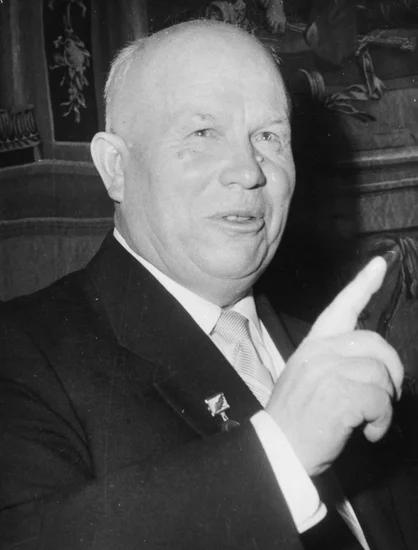
Nikita Khrushchev secured his position as first secretary of the Communist Party of the Soviet Union, beginning his transformative leadership era. His elevation marked the end of the post-Stalin succession struggle within the Kremlin.
Khrushchev’s appointment would soon reshape Soviet domestic and foreign policy through de-Stalinization campaigns. His leadership style dramatically contrasted with his predecessor’s authoritarian approach, introducing limited reforms across the USSR.
1977 – Panama Canal Treaties Signed
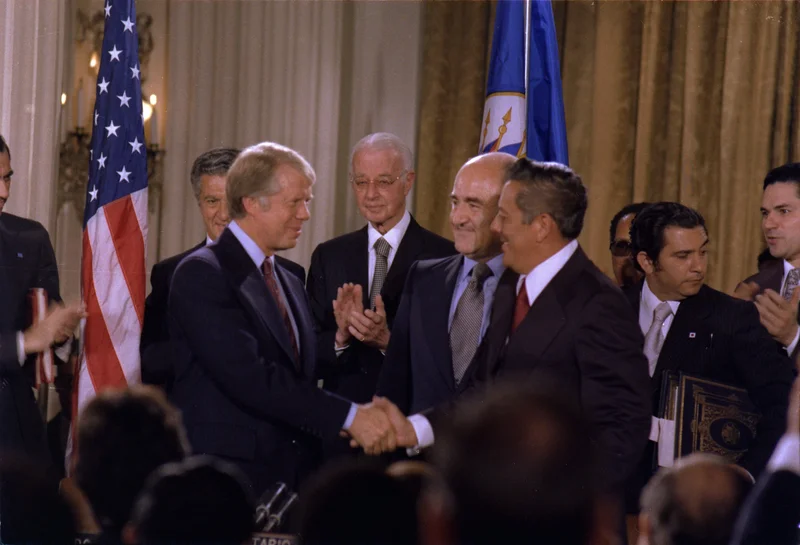
President Jimmy Carter and General Omar Torrijos signed the historic Torrijos-Carter Treaties, fundamentally altering the Panama Canal’s future. The United States agreed to transfer complete control of the strategic waterway to Panama by century’s end.
These agreements ended decades of Panamanian demands for sovereignty over their territory. The treaties represented a significant shift in American foreign policy toward Latin America during the Cold War era.
2005 – Egypt Holds First Multi-Party Presidential Election
Egypt conducted its inaugural multi-party presidential election, marking a significant departure from decades of single-candidate referendums. President Hosni Mubarak faced multiple challengers in this historic democratic opening.
The election represented a carefully managed political liberalization under international pressure. Despite allowing opposition candidates, the incumbent maintained overwhelming advantages through state media control and restrictive campaign regulations.
Military and Naval History on September 7
1940 – London Blitz Begins
The German Luftwaffe launched its devastating bombing campaign against London and British cities, initiating the Blitz. Over 300 German bombers targeted London’s docks and residential areas in the first massive air assault.
This aerial offensive would continue for 57 consecutive nights, testing British resolve and civilian morale. The Blitz marked Nazi Germany’s attempt to break British resistance before launching Operation Sea Lion.
1945 – Japanese Forces Surrender Wake Island
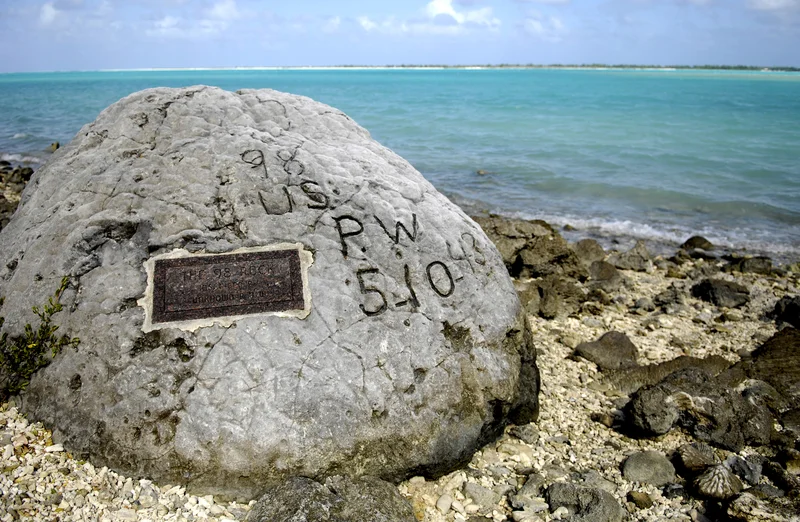
Japanese military forces occupying Wake Island since December 1941 formally surrendered to United States Marines. The strategic atoll’s liberation marked another step in Japan’s systematic defeat across the Pacific.
Wake Island’s recapture held deep symbolic significance for American forces who had fought desperately there early in the war. The surrender ceremony represented the reversal of Japanese territorial gains achieved during their initial Pacific offensive.
1943 – German Army Begins Kuban Evacuation
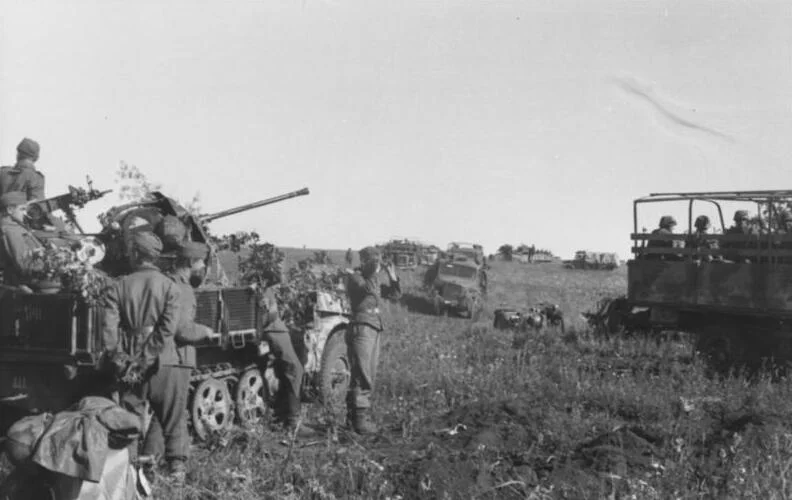
The German 17th Army commenced its strategic withdrawal from the Kuban bridgehead on the Taman Peninsula. This evacuation marked Nazi Germany’s retreat from the Caucasus region following devastating losses at Stalingrad.
German forces systematically destroyed infrastructure while crossing the Strait of Kerch to Crimea. The withdrawal represented Hitler’s acknowledgment that his ambitious southern offensive had failed permanently.
1932 – Chaco War’s First Major Battle Begins
The Battle of Boquerón commenced between Bolivia and Paraguay, marking the first major engagement of the Chaco War. Bolivian forces launched their offensive against Paraguayan positions in the disputed Gran Chaco region.
This conflict would rage for three years over territorial claims and potential oil reserves. The battle’s outcome would significantly influence the war’s trajectory and regional power dynamics in South America.
Science and Discovery Milestones on September 7
1927 – First Electronic Television System Achieved

Philo Farnsworth successfully demonstrated the world’s first fully electronic television system, transmitting clear images without mechanical components. His revolutionary cathode-ray tube technology eliminated the spinning disks used in earlier experimental systems.
Farnsworth’s breakthrough established the fundamental principles underlying modern television broadcasting. His electronic scanning method provided superior image quality and reliability compared to mechanical television systems then in development.
1906 – Santos-Dumont Achieves Historic Flight

Alberto Santos-Dumont piloted his 14-bis aircraft successfully at Bagatelle, France, accomplishing the first powered flight in Europe. His achievement demonstrated heavier-than-air flight to skeptical European audiences who had doubted the Wright brothers’ claims.
The Brazilian aviation pioneer’s public demonstration convinced European observers that mechanical flight was genuinely possible. Santos-Dumont’s triumph sparked intense aeronautical development across Europe, accelerating the aviation revolution.
1995 – Space Shuttle Endeavour Launches Scientific Mission

Space Shuttle Endeavour launched on STS-69, carrying the Wake Shield Facility for its second orbital deployment. This specialized platform created ultra-high vacuum conditions in space for advanced materials research.
The mission demonstrated space-based manufacturing capabilities that could benefit future industrial applications. Endeavour’s crew conducted multiple experiments examining how microgravity affects materials processing and crystal growth.
1997 – F-22 Raptor Makes Maiden Flight
The Lockheed Martin F-22 Raptor completed its first flight, introducing revolutionary stealth fighter technology. This advanced aircraft incorporated unprecedented radar-absorbing materials and supercruise capability without afterburners.
The Raptor’s maiden flight represented decades of aerospace engineering advancement in stealth technology. Its combination of speed, maneuverability, and radar invisibility established new standards for air superiority fighters.
Cultural and Arts Events on September 7
1921 – First Miss America Pageant Held
Atlantic City, New Jersey hosted the inaugural Miss America Pageant as a two-day event promoting tourism and local businesses. The competition featured participants from major American cities competing for the golden mermaid trophy.
This pioneering beauty contest would evolve into America’s most prestigious pageant, influencing cultural standards and women’s opportunities. The event’s success prompted similar competitions nationwide, establishing the modern pageant industry.
1911 – Guillaume Apollinaire Arrested for Mona Lisa Theft

French authorities arrested renowned poet Guillaume Apollinaire on suspicion of stealing the Mona Lisa from the Louvre museum. The arrest shocked Paris’s artistic community and generated international headlines about the missing masterpiece.
Apollinaire’s detention highlighted the desperation surrounding the investigation into Leonardo da Vinci’s stolen painting. Though later released, the poet’s arrest demonstrated how the theft had rattled French cultural institutions.
1963 – Pro Football Hall of Fame Opens
The Professional Football Hall of Fame officially opened in Canton, Ohio, with seventeen charter members receiving induction. This shrine to American football history established permanent recognition for the sport’s greatest contributors.
The Hall of Fame’s creation reflected professional football’s growing cultural significance in American society. Canton’s selection honored the city’s role as the birthplace of the National Football League.
Religious and Social Events on September 7
1921 – Legion of Mary Founded

The Legion of Mary, destined to become the Catholic Church’s largest lay apostolic organization, was founded in Dublin, Ireland. Frank Duff established this religious movement to engage laypeople in active evangelization and charitable works.
The organization’s founding reflected growing emphasis on lay participation in Catholic missions worldwide. The Legion’s structure would eventually spread to every continent, mobilizing millions of Catholic laypeople in religious service.
1986 – Desmond Tutu Becomes Anglican Archbishop

Desmond Tutu made history by becoming the first black Archbishop of Cape Town, leading the Anglican Church in South Africa. His appointment occurred during the height of apartheid, when racial segregation dominated all aspects of South African society.
Tutu’s elevation provided powerful symbolic leadership for the anti-apartheid movement within religious circles. His moral authority would prove instrumental in advocating for peaceful transition to majority rule in South Africa.
1970 – Fighting Erupts in Jordan
Armed conflict began between Palestinian guerrillas and Jordanian government forces, initiating what would become known as Black September. The confrontation arose from tensions over Palestinian military presence in Jordan.
This conflict would reshape Middle Eastern politics and Palestinian resistance strategy for decades. King Hussein’s decision to confront the Palestine Liberation Organization marked a crucial turning point in regional power dynamics.
Business and Economic Events on September 7
1979 – Chrysler Corporation Seeks Government Bailout
The Chrysler Corporation formally requested $1.5 billion in federal assistance to avoid bankruptcy, marking one of the largest corporate bailout requests in American history. The company’s financial crisis threatened thousands of jobs and supplier relationships.
Chrysler’s plea highlighted the American auto industry’s vulnerability to foreign competition and changing consumer preferences. The bailout request sparked intense debate about government intervention in private enterprise during economic crises.
2008 – Government Seizes Fannie Mae and Freddie Mac
The United States government assumed control of Fannie Mae and Freddie Mac, the nation’s two largest mortgage financing companies. This unprecedented intervention aimed to stabilize the collapsing housing market during the financial crisis.
The takeover represented the largest government intervention in private financial markets since the Great Depression. Federal control of these mortgage giants affected millions of homeowners and reshaped American housing finance permanently.
2021 – Bitcoin Becomes Legal Tender in El Salvador
El Salvador made history by adopting Bitcoin as official legal tender alongside the US dollar. President Nayib Bukele’s bold economic experiment made the Central American nation the first country to embrace cryptocurrency officially.
This groundbreaking decision sparked international debate about digital currencies and their role in national economies. El Salvador’s Bitcoin adoption attracted global attention from investors, economists, and cryptocurrency enthusiasts worldwide.
Transportation and Infrastructure on September 7
1907 – RMS Lusitania Begins Maiden Voyage
Cunard Line’s magnificent RMS Lusitania departed Liverpool, England, on her maiden voyage to New York City. This luxurious ocean liner represented the pinnacle of early 20th-century maritime technology and passenger comfort.
The Lusitania’s design incorporated advanced turbine engines and elegant accommodations for wealthy transatlantic travelers. Her maiden voyage marked Britain’s continued dominance in prestigious passenger shipping despite growing German competition.
1977 – Television Tower Collapses in Ontario
The 300-meter CKVR-DT transmission tower in Barrie, Ontario, collapsed after being struck by a light aircraft flying in heavy fog. All occupants of the aircraft perished in the tragic accident.
The tower’s destruction disrupted television broadcasting across central Ontario for months. This disaster highlighted the dangers posed by communication towers to low-flying aircraft in poor weather conditions.
1970 – Vietnam Television Established
Vietnam Television was officially established, creating the foundation for the country’s national broadcasting system. This media development occurred during the ongoing Vietnam War, serving both propaganda and information functions.
The television network’s creation reflected Vietnam’s determination to build modern communication infrastructure despite wartime conditions. VTV would eventually become the primary source of news and entertainment for Vietnamese audiences nationwide.
Sports and Recreation on September 7
2011 – Lokomotiv Yaroslavl Hockey Team Plane Crash

A devastating plane crash in Russia killed 43 people, including nearly the entire roster of the Lokomotiv Yaroslavl Kontinental Hockey League team. The tragedy shocked the international hockey community and devastated the Russian city of Yaroslavl.
The crash eliminated one of Russia’s most successful hockey teams, including several former NHL players and rising stars. This disaster prompted comprehensive safety reviews of aircraft used for sports team transportation across Russia.
1909 – First Aviation Fatality in Powered Flight

Eugène Lefebvre became the world’s first aviator to die while piloting a powered heavier-than-air aircraft when his Wright biplane crashed at Port-Aviation near Paris. His death marked aviation’s first fatal accident involving a powered airplane.
Lefebvre’s tragic end highlighted the extreme dangers facing early aviation pioneers pushing the boundaries of flight technology. His sacrifice contributed to safety improvements that would make aviation more reliable for future generations.
1929 – Steamer Kuru Disaster
The passenger steamer Kuru capsized and sank on Lake Näsijärvi near Tampere, Finland, claiming 136 lives in one of Finland’s worst maritime disasters. The tragic accident occurred during what should have been a routine passenger journey.
The Kuru disaster prompted comprehensive reforms in Finnish maritime safety regulations and emergency response procedures. This tragedy remains one of the deadliest peacetime maritime accidents in Finnish history.
Notable Births on September 7
1936 – Buddy Holly Born

American rock and roll pioneer Buddy Holly entered the world in Lubbock, Texas, destined to revolutionize popular music. His innovative guitar techniques and songwriting would influence countless musicians despite his tragically short career.
Holly’s distinctive sound combined country, rhythm and blues, and pop influences into a uniquely American musical style. His creative approach to recording and performing established foundational elements of modern rock music.
1908 – Michael DeBakey Born
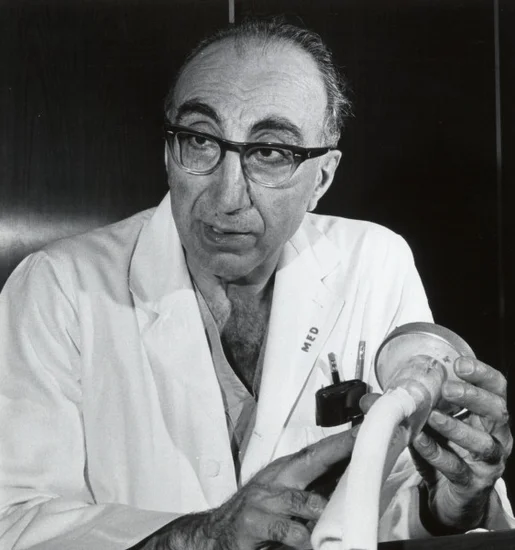
Pioneering cardiovascular surgeon Michael DeBakey was born in Lake Charles, Louisiana, beginning a life dedicated to medical innovation. His groundbreaking surgical techniques would save countless lives and advance cardiac surgery worldwide.
DeBakey’s innovations included the first successful coronary artery bypass surgery and development of artificial hearts. His contributions to cardiovascular medicine earned him recognition as one of the 20th century’s greatest surgeons.
1930 – Sonny Rollins Born
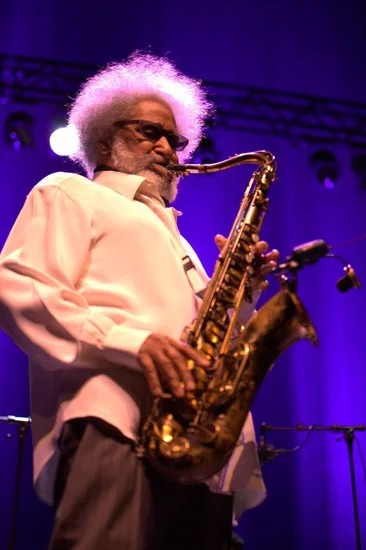
Jazz saxophone legend Sonny Rollins was born in New York City, destined to become one of the most influential tenor saxophonists in jazz history. His innovative improvisational style would inspire generations of jazz musicians.
Rollins’ distinctive sound and creative approach to jazz standards established him as a master of bebop and hard bop styles. His lengthy career spans over six decades of groundbreaking jazz performances and recordings.
1909 – Elia Kazan Born

Greek-American director Elia Kazan was born in Constantinople, beginning a career that would reshape American theater and cinema. His innovative directing techniques would influence Hollywood filmmaking for decades.
Kazan’s work with the Actors Studio helped develop method acting techniques that revolutionized American performance. His films and theatrical productions tackled controversial social issues with unprecedented realism and emotional depth.
1951 – Chrissie Hynde Born

Rock musician Chrissie Hynde was born in Akron, Ohio, destined to become the driving force behind the influential band The Pretenders. Her distinctive voice and songwriting would define new wave rock music.
Hynde’s powerful stage presence and uncompromising artistic vision challenged gender expectations in rock music. Her contributions helped establish alternative rock as a legitimate musical movement during the 1980s and beyond.
Notable Deaths on September 7
1978 – Keith Moon Dies
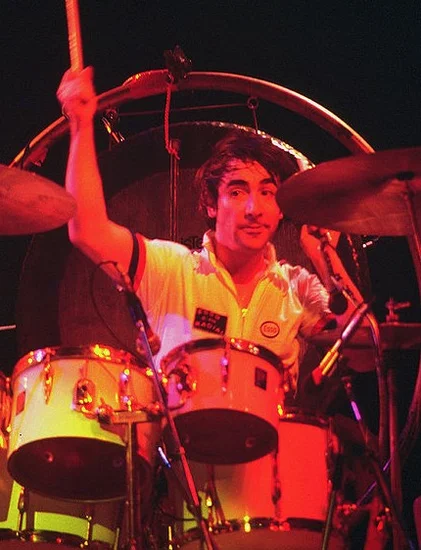
Keith Moon, the legendary drummer of The Who, died in London at age 32, ending one of rock music’s most explosive careers. His innovative drumming style and wild personality had defined The Who’s sound and stage presence.
Moon’s death marked the end of an era for British rock music and devastated The Who’s remaining members. His influence on rock drumming continues to inspire musicians decades after his tragic passing from a drug overdose.
2003 – Warren Zevon Dies
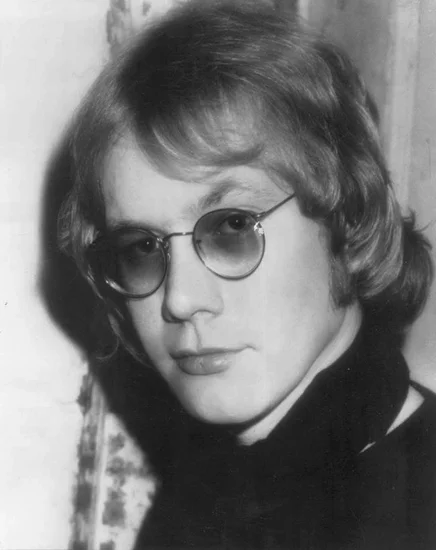
Singer-songwriter Warren Zevon died in Los Angeles at age 56, concluding a career marked by dark humor and musical brilliance. His sardonic lyrics and distinctive voice had earned him a devoted following among critics and fellow musicians.
Zevon’s final album, recorded after his terminal cancer diagnosis, stands as a powerful artistic statement about mortality. His songs continue to influence alternative rock and Americana musicians worldwide.
1997 – Mobutu Sese Seko Dies

Congolese dictator Mobutu Sese Seko died in exile in Morocco, ending his 32-year rule over Zaire (now Democratic Republic of Congo). His kleptocratic regime had devastated the resource-rich nation while enriching his inner circle.
Mobutu’s death marked the end of one of Africa’s most destructive dictatorships and allowed for potential democratic reforms. His legacy of corruption and misrule would continue to affect Congo for decades after his passing.
1969 – Everett Dirksen Dies

Senator Everett Dirksen of Illinois died in Washington, D.C., concluding a distinguished career in American politics. His eloquent speeches and bipartisan approach had made him one of the Senate’s most respected figures.
Dirksen’s death removed a moderate Republican voice from an increasingly polarized political landscape. His ability to work across party lines on civil rights legislation had proven crucial to major legislative achievements.
Holidays and Observances on September 7
Air Force Day (Pakistan)
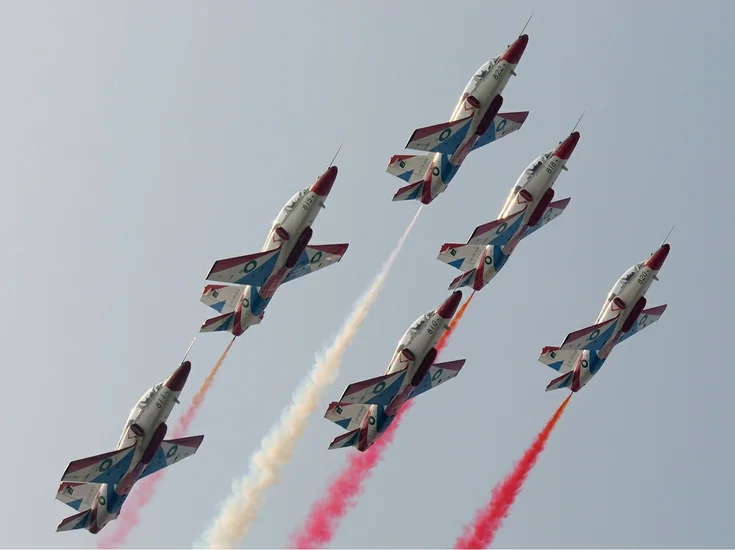
Pakistan observes Air Force Day to honor the Pakistan Air Force and commemorate its role in national defense. The celebration includes military parades, air shows, and ceremonies recognizing the service’s contributions to national security.
This observance reinforces public appreciation for military aviation and the brave personnel who serve their country. The day typically features demonstrations of the air force’s capabilities and technological achievements.
Independence Day (Brazil)

Brazil celebrates its Independence Day, commemorating the nation’s declaration of independence from Portugal in 1822. The holiday marks Emperor Pedro I’s historic “Cry of Ipiranga” that established Brazilian sovereignty.
This national celebration features parades, cultural events, and patriotic displays across Brazil’s major cities. The day reinforces Brazilian national identity and pride in the country’s journey from colonial territory to independent nation.
Constitution Day (Fiji)
Fiji observes Constitution Day to commemorate the adoption of its national constitution and the principles of democratic governance. The holiday celebrates the establishment of Fiji’s legal framework and democratic institutions.
This observance emphasizes the importance of constitutional democracy and rule of law in Fijian society. The day typically includes educational programs about civic responsibility and constitutional rights.
